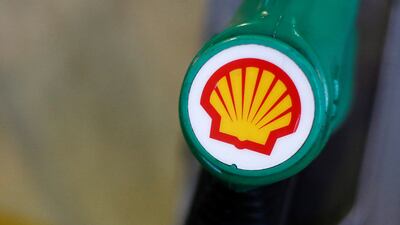Live updates: follow the latest news on Russia-Ukraine
UK energy firm Shell is stopping all purchases of Russian oil and natural gas, following a backlash over its decision to buy crude oil from the country last week.
The FTSE100 company apologised on Tuesday for buying Russian oil on Friday. It said it would withdraw completely from any involvement in Russian hydrocarbons because of the country's invasion of Ukraine.
“We are acutely aware that our decision last week to purchase a cargo of Russian crude oil ... was not the right one and we are sorry,” Shell chief executive Ben van Beurden said on Tuesday.
“Our actions to date have been guided by continuous discussions with governments about the need to disentangle society from Russian energy flows. Threats today to stop pipeline flows to Europe further illustrate the difficult choices and potential consequences we face as we try to do this.”
While the US, Britain and the EU have imposed tough economic sanctions on Russia, they have stopped short of banning oil and gas imports from the country because of concerns about the effect that would have on global energy supplies.
Russia is the world’s second-biggest oil producer, accounting for more than 12 per cent of global production, according to the International Energy Agency.
Shell said it would halt spot purchases of Russian crude oil immediately and would change its crude oil supply chain to remove volumes from the sanctions-hit country “as fast as possible”.
It will also shut its petrol stations and aviation fuels and lubricants operations in Russia.
The company also said it will commit profits from” the limited, remaining amounts of Russian oil we will process” to a dedicated fund.
“We will work with aid partners and humanitarian agencies over the coming days and weeks to determine where the monies from this fund are best placed to alleviate the terrible consequences that this war is having on the people of Ukraine,” Mr van Beurden said.
The company said the change could take weeks to complete and will lead to lower output of fuels at some of its refineries.
The move comes as diesel markets are already in crisis mode as traders try to make sense of the magnitude of supply shortfalls due to the Russia crisis.
Ending the company’s use of refined oil and natural gas supplies from the country “will take much longer” because it represents such a “complex challenge”, Shell said.
The invasion of Ukraine prompted a huge range of companies to withdraw from their operations in Russia, including energy giants BP and Exxon Mobil.
Attention has now shifted to the country’s energy exports, a crucial source of revenue for President Vladimir Putin’s government.
On Friday, Shell received heavy criticism after buying a cargo of Russian crude, with Ukraine’s Foreign Minister Dmytro Kuleba taking to Twitter to ask the company whether the oil smelled like “Ukrainian blood for you?”
On Monday, TotalEnergies chief Executive Patrick Pouyanne that his company’s trading arm had already stopped buying Russian oil, but one its refineries in Germany would continue to receive crude from the country because there was no alternative supply.
Engie boss Catherine MacGregor said on Tuesday that her company continues to buy Russian gas because its customers depend on those supplies.
Even without direct western sanctions on Russian energy exports, the risk that buyers will voluntarily shun the country’s supplies have triggered unprecedented surges in crude and natural gas prices.
A month ago, oil was selling for about $90 a barrel. Now, prices are surging past $120 a barrel as buyers turn away from Russian crude, with many refiners fearing that sanctions could be imposed in the future.
The IEA, which already announced the release of 60 million barrels of oil from emergency stockpiles, is prepared to recommend that its members release more if necessary, according to executive director Fatih Birol.


